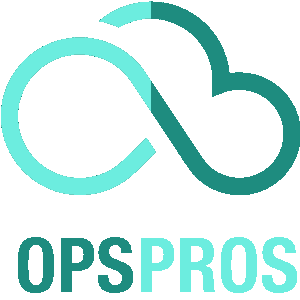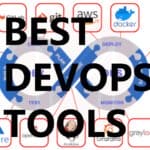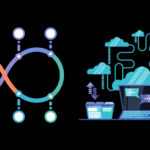 Are you looking for a reliable cloud service provider to help manage your business operations more efficiently? Look no further than Google Cloud Platform (GCP). GCP provides a comprehensive range of cloud services to help businesses of all sizes achieve their goals.
Are you looking for a reliable cloud service provider to help manage your business operations more efficiently? Look no further than Google Cloud Platform (GCP). GCP provides a comprehensive range of cloud services to help businesses of all sizes achieve their goals.
With GCP, you can enjoy the benefits of cost-effective cloud computing, storage, and networking solutions. Say goodbye to expensive hardware and maintenance costs, and hello to a scalable and flexible cloud infrastructure. Whether you need to host, store, or analyze data, GCP has you covered.
What sets GCP apart from other cloud service providers is its ability to provide customized solutions that cater to your unique business needs. From startups to large enterprises, GCP’s cloud services can help businesses across all industries.
So if you’re looking to streamline your business operations and harness the power of the cloud, consider Google Cloud Platform. Let’s explore what makes GCP’s cloud services stand out from the rest.
Introducing Google Cloud Platform
Welcome to the world of Google Cloud Platform (GCP)! GCP is a suite of cloud computing services offered by Google, providing businesses with an array of cloud solutions for their needs. With its robust infrastructure and cutting-edge technology, GCP offers a reliable and scalable platform for businesses to build, test, and deploy cloud-based applications.
What sets GCP apart from other cloud service providers is its ability to offer customized solutions to businesses of all sizes. From storage options to computing power, GCP’s portfolio of offerings is vast and can cater to a wide range of cloud computing requirements.
Key Features of Google Cloud Platform
Google Cloud Platform provides a range of cloud services to businesses of all sizes, allowing them to build, deploy, and scale applications and infrastructure on a global scale. With a vast array of offerings, GCP is a versatile solution that can be tailored to fit individual business needs and operations.
Some of the key features and offerings of Google Cloud Platform include:
| Service | Description |
|---|---|
| Compute | GCP provides a range of compute services, including virtual machines, containerization, and serverless computing. These services give businesses the flexibility to deploy and manage applications in a way that suits their needs. |
| Storage | GCP offers multiple storage options, including object, block, and file storage. This enables businesses to manage and store data efficiently and securely, making it readily accessible for analysis and decision-making. |
| Networking | GCP’s networking capabilities enable businesses to create and manage virtual private clouds, manage traffic with load balancing, and secure their data with firewalls and other measures. |
| Big Data and Analytics | GCP provides a suite of tools for processing and analyzing large datasets, including BigQuery, Dataflow, and Pub/Sub. These tools enable businesses to gain valuable insights from their data and make informed decisions. |
| Artificial Intelligence and Machine Learning | GCP’s AI and machine learning tools and services, such as AutoML, AI Platform, and TensorFlow, enable businesses to develop and deploy AI-powered solutions quickly and easily. |
| Application Development | GCP supports application development with services like Cloud Functions, App Engine, and Cloud Run, allowing businesses to develop, test, and deploy their applications with ease. |
These offerings come together to provide a comprehensive cloud solution that can be tailored to meet the specific needs of any business. With GCP, businesses can benefit from a combination of industry-leading technology and the world-class security and reliability of Google’s infrastructure.
Data Storage and Management on Google Cloud Platform
Google Cloud Platform offers a range of data storage and management services, giving businesses the flexibility to tailor their storage solutions to their specific needs.
One of the primary storage options provided by GCP is Google Cloud Storage, which enables businesses to store and access data from anywhere in the world. Cloud Storage offers different classes of storage, including multi-regional, regional, nearline, and coldline, allowing businesses to choose the most cost-effective option for their data needs.
GCP also provides Cloud SQL, a fully managed database service that supports MySQL, PostgreSQL, and SQL Server. Cloud SQL offers automatic backups, replication, and failover capabilities, ensuring that your data is always safe and available.
For big data processing and analytics, GCP offers Bigtable, a NoSQL database that provides low-latency access to large datasets. Bigtable is used by companies like Snapchat and Spotify to process massive amounts of data in real-time.
Finally, GCP’s Datastore service enables businesses to store structured data in a highly-scalable, NoSQL document database. Datastore supports transactions, queries, and indexes, making it an ideal solution for web and mobile applications.
Compute Services on Google Cloud Platform
Google Cloud Platform offers a range of compute services designed to meet the diverse needs of businesses. Whether you need virtual machines, containerization, or serverless computing, GCP has you covered.
One of the key advantages of GCP’s compute services is their flexibility. With the ability to quickly provision and scale resources, you can ensure that your applications have the resources they need to run smoothly. Additionally, GCP’s compute services integrate seamlessly with other GCP features, enabling you to build and deploy applications quickly and easily.
Virtual Machines
Virtual machines (VMs) are a core component of GCP’s compute services. With GCP’s VMs, you can quickly create and manage virtual machines with a variety of computing configurations, including custom machine types. GCP’s VMs also offer advanced features like sustained use discounts, where you receive automatic discounts on your compute charges for VMs that run for extended periods.
Containerization
GCP’s containerization services provide an efficient and flexible way to package and deploy your applications. With features like Google Kubernetes Engine (GKE), you can easily manage and scale your containerized applications, while taking advantage of GCP’s advanced networking and security features.
Serverless Computing
GCP’s serverless computing services, like Cloud Functions and Cloud Run, allow you to run code without the need for managing servers or infrastructure. This enables you to focus on writing code and building applications, while GCP handles the scaling, availability, and security of your servers.
Whether your business needs the flexibility of virtual machines, the efficiency of containerization, or the simplicity of serverless computing, GCP’s compute services have you covered.
Networking and Security on Google Cloud Platform
Google Cloud Platform offers robust networking and security features to keep your data and applications safe. With GCP, you can create virtual private clouds for secure communication between resources.
The platform also provides load balancing services that distribute traffic evenly across multiple instances to increase availability and prevent overload. Additionally, GCP’s firewall rules allow you to control network traffic and block unauthorized access to your resources.
Another key security feature of GCP is the Identity and Access Management (IAM) service, which helps you manage user and application permissions in a secure and centralized manner. You can also set up audit logs to track activity on your resources and detect potential security threats.
GCP’s networking capabilities also include support for hybrid cloud environments, allowing you to connect your on-premises data center to GCP via a virtual private network (VPN) or dedicated interconnect.
Overall, Google Cloud Platform provides comprehensive networking and security solutions that enable you to build, deploy, and manage your applications with confidence.
Big Data and Analytics on Google Cloud Platform
One of the most significant advantages of Google Cloud Platform is its capacity for big data processing and analytics. With tools like BigQuery, Dataflow, and Pub/Sub, businesses can gain valuable insights from large and complex datasets.
Google Cloud Platform offers a suite of tools that enable businesses to extract insights from their data efficiently. BigQuery, for instance, is a fully-managed, cloud-native data warehouse that can handle petabyte-scale data analytics. It is highly scalable, cost-effective, and can execute SQL queries in real-time.
Another tool that businesses can use to process big data on GCP is Dataflow, a fully-managed service for executing processing pipelines. Dataflow provides automatic scaling, increased efficiency, and integration with other GCP services like BigQuery and Cloud Storage.
Pub/Sub, on the other hand, is a messaging service that enables businesses to send and receive asynchronous messages between independent applications. It offers a reliable and scalable platform for streaming data ingestion and processing.
With these tools, businesses can effectively manage their big data and analytics needs on Google Cloud Platform.
Artificial Intelligence and Machine Learning on Google Cloud Platform
Google Cloud Platform offers a suite of Artificial Intelligence (AI) and Machine Learning (ML) services that enable businesses to develop and deploy intelligent solutions. With Google Cloud Platform’s AI and ML tools, businesses can automate processes and make data-driven decisions.
One of the most popular AI services on GCP is AutoML, which allows businesses to create machine learning models with minimal coding. AutoML enables businesses to automate tasks, such as image classification, natural language processing, and speech recognition. This service is ideal for businesses with limited ML expertise that want to take advantage of the benefits of machine learning.
Google Cloud Platform also offers AI Platform, a tool for building and deploying custom ML models. With AI Platform, businesses can create and train models using popular ML frameworks such as TensorFlow, PyTorch, and Scikit-learn. Additionally, AI Platform enables businesses to manage models at scale, making it easy to deploy models to production environments.
TensorFlow, a popular open-source ML framework, is also available on Google Cloud Platform. TensorFlow can be used to build custom machine learning models for a variety of use cases, including image and speech recognition, predictive analytics, and natural language processing.
Machine learning plays a crucial role in Big Data processing and analytics, and Google Cloud Platform offers several services to support these use cases. Dataflow, for example, is a fully-managed service for processing and streaming big data in real-time. Dataflow enables businesses to process data at scale, making it easier to extract valuable insights. Meanwhile, Pub/Sub is a fully-managed messaging service that enables businesses to decouple their systems and applications, enabling real-time data processing and analytics.
Overall, Google Cloud Platform’s AI and ML services provide businesses with the tools they need to develop, train, and deploy intelligent solutions. With these services, businesses can automate processes, accelerate decision-making, and gain valuable insights from their data.
Application Development on Google Cloud Platform
Google Cloud Platform offers a wide range of services that support application development. With GCP, developers can easily build, deploy, and manage their applications in a secure and scalable environment.
One of the key services provided by GCP is Cloud Functions, which enables developers to create lightweight code that runs in response to events. It supports multiple programming languages, making it easy for developers to work with their preferred language.
Another service that supports application development on GCP is App Engine, which is a platform-as-a-service (PaaS) offering that allows developers to build web and mobile applications without worrying about infrastructure management. App Engine supports popular programming languages such as Java, Python, and Node.js.
Cloud Run is another option to consider for application development on GCP. It is a fully managed serverless platform that allows developers to build and run containers on a fully managed environment. Cloud Run supports both stateless and stateful applications and can be easily integrated with other GCP services.
Overall, GCP provides developers with a complete set of tools and services that simplify application development, deployment, and management. By leveraging GCP’s offerings, developers can save valuable time and resources and focus on building high-quality applications.
GCP Pricing and Cost Management
One of the top advantages of using Google Cloud Platform is its flexible pricing models and cost management strategies. GCP offers a pay-as-you-go model, allowing businesses to pay only for the services they use and scale up or down their resources as needed.
GCP also provides a range of cost management tools, including budget alerts, usage reports, and cost optimization recommendations. These features help businesses keep track of their spending and optimize their cloud usage to reduce costs.
GCP offers a free tier for certain services, allowing businesses to try out the platform at no cost. Additionally, GCP provides a pricing calculator to help businesses estimate their costs based on usage and configurations.
By leveraging GCP’s pricing and cost management features, businesses can effectively manage their cloud spending and achieve cost savings.
Customer Success Stories on Google Cloud Platform
Google Cloud Platform has helped many businesses transform their operations with its range of cloud services. Here are some inspiring customer success stories:
| Customer | Industry | Success Story |
|---|---|---|
| Spotify | Music | “With Google Cloud Platform, Spotify has been able to improve the accuracy and speed of music recommendations to its users, enhancing the overall listening experience.” |
| HSBC | Finance | “HSBC has leveraged GCP’s security and compliance capabilities to ensure the safe and efficient handling of sensitive financial data across its global operations.” |
| PayPal | Payment Processing | “By using Google Cloud Platform, PayPal has been able to increase the speed and efficiency of its payment processing system, reducing transaction processing time by up to 30%.” |
These are just a few examples of how businesses of all sizes and industries have benefited from using Google Cloud Platform. By leveraging GCP’s powerful cloud services, businesses can transform their operations and achieve greater success.
Conclusion: Embrace the Power of Google Cloud Platform
Google Cloud Platform is a powerful cloud service provider that offers a wide range of cloud solutions for businesses of all sizes. From storage and data management to networking and security, GCP provides all the necessary tools and services to run your business operations efficiently and effectively.
Moreover, GCP has an impressive portfolio of advanced technologies, including big data processing, artificial intelligence, machine learning, and application development. These technologies can help businesses gain valuable insights, automate processes, and develop cutting-edge applications and services.
As seen in our customer success stories, businesses across different industries have leveraged GCP to achieve their goals and drive growth. With GCP’s scalable and flexible infrastructure, businesses can expand their operations with ease, without worrying about infrastructure limitations or downtime.
Google Cloud Platform offers a transparent and competitive pricing model, with various cost optimization strategies and pricing calculators available to help businesses manage their cloud costs effectively. This ensures that businesses can utilize GCP’s services without breaking the bank.
Embrace the power of Google Cloud Platform today, and take your business to the next level!
FAQ
Q: What is Google Cloud Platform?
A: Google Cloud Platform is a suite of cloud computing services provided by Google. It offers a wide range of infrastructure and platform services for businesses to build, deploy, and scale their applications and data on Google’s infrastructure.
Q: What are the advantages of using Google Cloud Platform?
A: Google Cloud Platform provides numerous advantages, including global scalability, high performance, reliability, security, and cost-effectiveness. It allows businesses to focus on their core operations while leveraging Google’s infrastructure and expertise.
Q: What cloud solutions does Google Cloud Platform offer?
A: Google Cloud Platform offers various cloud solutions, including storage, compute services, networking, big data analytics, artificial intelligence, machine learning, and application development tools. These solutions cater to different business needs and help drive innovation and efficiency.
Q: What are the key features of Google Cloud Platform?
A: Google Cloud Platform offers a wide range of features, including scalable storage options, powerful computing capabilities, robust networking and security features, comprehensive big data analytics tools, advanced AI and machine learning services, and flexible application development platforms.
Q: How does Google Cloud Platform handle data storage and management?
A: Google Cloud Platform provides various data storage and management services, such as Google Cloud Storage, Cloud SQL, Cloud Bigtable, and Cloud Firestore. These services offer reliable and scalable storage solutions for different types and sizes of data.
Q: What compute services are available on Google Cloud Platform?
A: Google Cloud Platform offers compute services like Compute Engine, Google Kubernetes Engine, and Cloud Functions. These services enable businesses to run virtual machines, manage containers, and execute serverless functions on Google’s infrastructure.
Q: How does Google Cloud Platform ensure networking and security?
A: Google Cloud Platform provides virtual private clouds, load balancing, firewalls, and other networking and security features to protect data and applications. These measures ensure secure and reliable connectivity within and outside the Google Cloud infrastructure.
Q: What big data and analytics tools does Google Cloud Platform offer?
A: Google Cloud Platform offers tools like BigQuery, Dataflow, and Pub/Sub for big data processing and analytics. These tools enable businesses to analyze large datasets, extract valuable insights, and make data-driven decisions.
Q: What artificial intelligence and machine learning services are available on Google Cloud Platform?
A: Google Cloud Platform provides AI and machine learning services like AutoML, AI Platform, and TensorFlow. These services empower businesses to develop and deploy AI-powered solutions for various applications, from image recognition to natural language processing.
Q: How does Google Cloud Platform support application development?
A: Google Cloud Platform offers services like Cloud Functions, App Engine, and Cloud Run to support application development. These services enable businesses to build, deploy, and scale applications seamlessly on the Google Cloud infrastructure.
Q: How does Google Cloud Platform handle pricing and cost management?
A: Google Cloud Platform has a flexible pricing model with various pricing options for different services. It also provides tools and strategies to help businesses optimize their costs on the platform, including cost calculators and recommendations for cost-effective resource usage.
Q: Can you provide customer success stories using Google Cloud Platform?
A: There are numerous customer success stories on Google Cloud Platform. Many businesses from various industries have successfully leveraged GCP to enhance their operations, improve efficiency, and achieve significant cost savings. These success stories showcase the real-world benefits of using GCP.
James is an esteemed technical author specializing in Operations, DevOps, and computer security. With a master’s degree in Computer Science from CalTech, he possesses a solid educational foundation that fuels his extensive knowledge and expertise. Residing in Austin, Texas, James thrives in the vibrant tech community, utilizing his cozy home office to craft informative and insightful content. His passion for travel takes him to Mexico, a favorite destination where he finds inspiration amidst captivating beauty and rich culture. Accompanying James on his adventures is his faithful companion, Guber, who brings joy and a welcome break from the writing process on long walks.
With a keen eye for detail and a commitment to staying at the forefront of industry trends, James continually expands his knowledge in Operations, DevOps, and security. Through his comprehensive technical publications, he empowers professionals with practical guidance and strategies, equipping them to navigate the complex world of software development and security. James’s academic background, passion for travel, and loyal companionship make him a trusted authority, inspiring confidence in the ever-evolving realm of technology.






